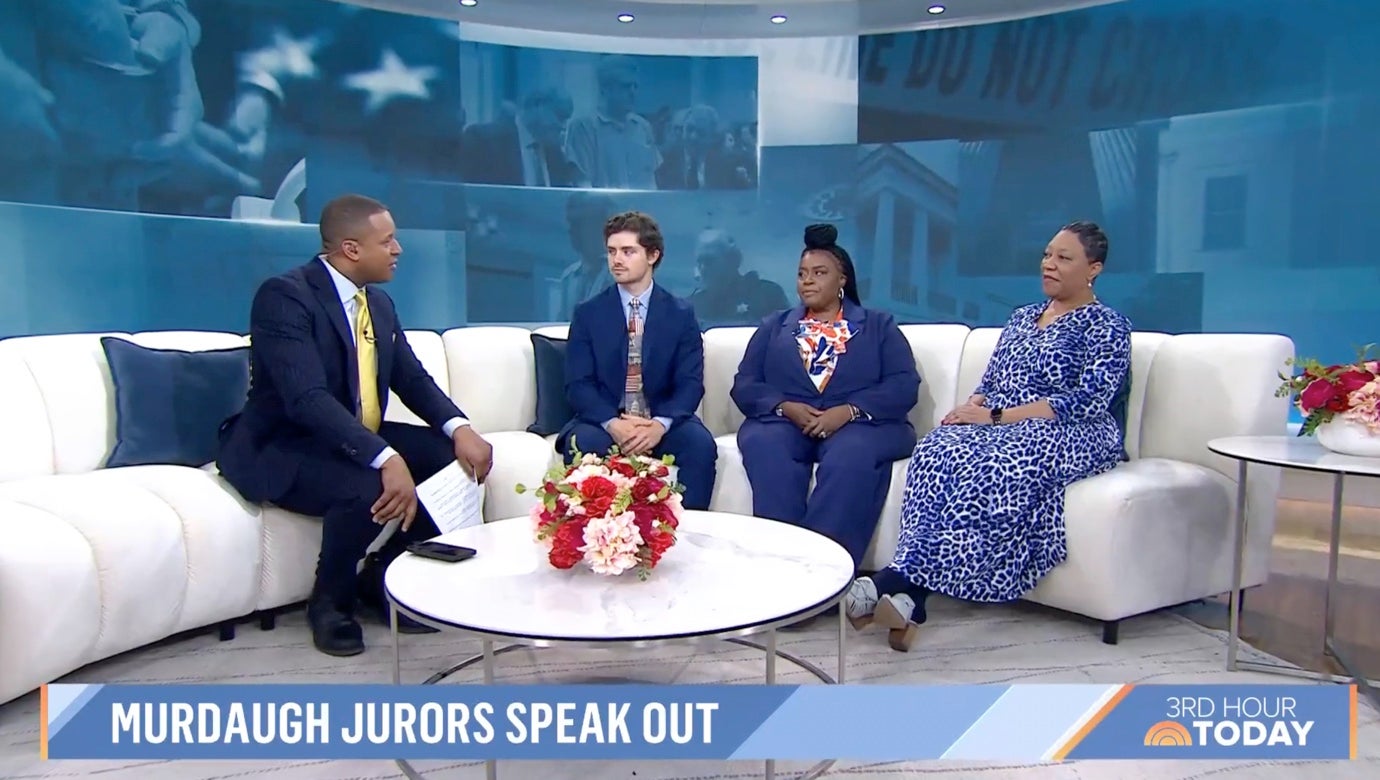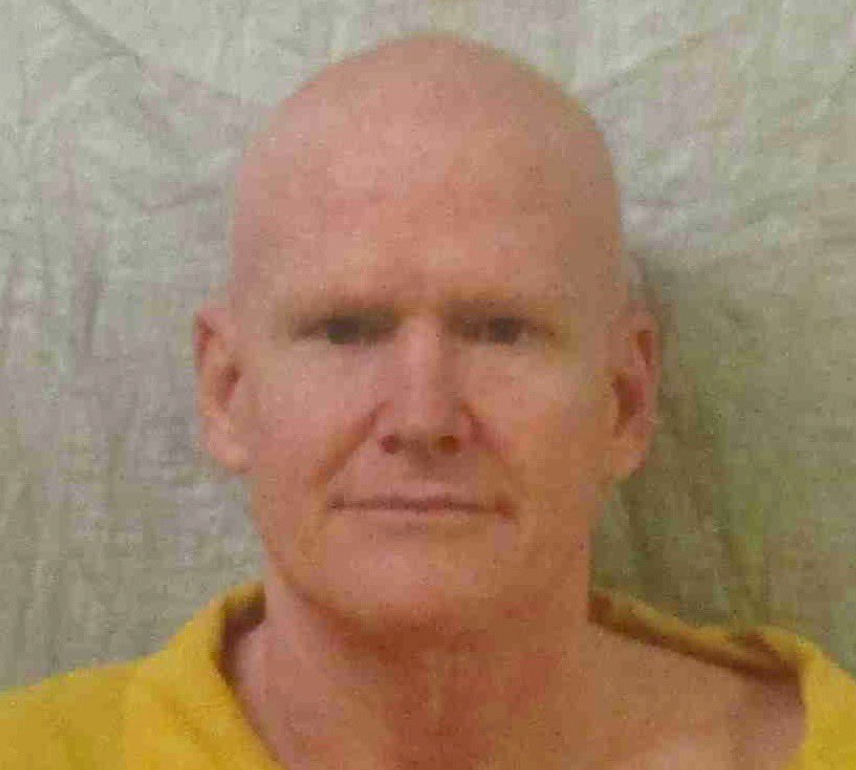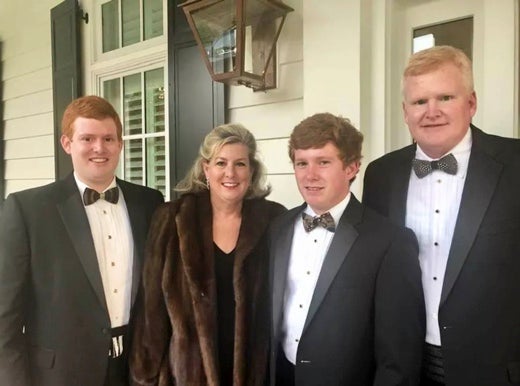Alex Murdaugh jurors reveal why they weren’t fooled by his ability to turn the tears ‘on and off’ on the stand
Rather than convince the jury of his innocence, jurors said the killer’s decision to testify in his own defence helped to prove his guilt
Jurors in Alex Murdaugh’s murder trial have revealed that they weren’t fooled by his ability to turn the tears “on and off” on the witness stand.
James McDowell, Gwen Generette and Amie Williams broke their silence about what went down in the jury room at the disgraced attorney’s trial where the panel returned a unanimous guilty verdict in the double murder of his wife Maggie and son Paul.
Rather than convince the jury of his innocence, the three jurors told NBC’s TODAY show on Monday that the killer’s decision to testify in his own defence was one of the key things that actually helped to prove his guilt.
The panel saw right through his manufactured tears when he broke down and sobbed on the stand speaking about his wife and son, said Ms Generette – with the trio all agreeing it was a mistake for Murdaugh to testify.
“No, I didn’t think he was crying. He turned it on and off,” she said. “No, it wasn’t genuine.”
Mr McDowell, who at 22 is the same age Paul was when he was murdered, said that he noticed Murdaugh would “flip a switch” to try to show emotion in front of the jury.
“He’s able to flip that switch. He knows when to be emotional,” he said.
“He knows he’s talking to the jury. His fate is in their hands. He needs to be emotional.”
He added: “We already know that he’s a lawyer. He’s able to be emotional with cases. He’s able to be emotional with himself. I think we were able to read right through that.”
Ms Williams added that Murdaugh “didn’t help himself” by testifying and by admitting that he had lied about his alibi on the night of the murders.
But, beyond Murdaugh’s demeanour and his version of events, the jurors agreed that the single most crucial piece of evidence that led them to return a guilty verdict was the cellphone video taken by Paul minutes before he and his mother were killed.
“It’s something that he lied about. It’s something that was interesting as, if he didn’t do it, how did he know what time to lie about not being there?” said Mr McDowell of the kennel video.
“And you know it came from Paul who has no reason to lie.
“I think it was important to be able to get that piece of evidence from someone who is a victim.”

Ms Generette agreed: “I think it probably would have been a hung jury if it had not been for that video. It was like he spoke from the grave.”
In the cellphone video, taken at 8.44pm on the night of 7 June 2021, Paul captured his friend’s brown labrador in the dog kennels on the family’s 1,700 acre estate.
Off-camera, three distinct voices can be heard: Paul, Maggie and Alex Murdaugh.
The video destroyed Murdaugh’s alibi, placing him at the scene of the murders and proving that he had lied about when he last saw his wife and son alive.
For the past 20 months, the disgraced attorney had claimed that he never went down to the kennels with his wife and son that night.
When he took the witness stand, he finally confessed that he had lied to law enforcement, to his family and to his friends all that time – but continued to insist that he did not murder his wife and son.
As well as proving his lie, Ms Generette said that hearing Murdaugh speak on the stand also allowed her to hear for herself that it really was the same voice she could hear in the cellphone video.
“When he got on the stand, I was like, ‘OK, so it was him,’” she said.
“I don’t know him so I never knew his voice, but I realised it was him in the kennel video, and that just kind of sealed the deal.”
When the jury began deliberations on Thursday afternoon, the first thing they did was say a prayer “for clarity… and that the truth will be revealed”, they revealed.
They then took an initial – and anonymous – vote which came back with nine guilty, two not guilty and one unsure.
But the three holdouts soon also reached a guilty verdict as “their questions were answered” by the evidence, said Ms Generette.
When asked about Murdaugh’s motive for the killings, the three jurors said they believed it was likely not “one singular thing” but several factors at play including the disbarred attorney’s slew of financial crimes.
“He wanted to have control of everything – his wife owned the majority of the things that they owned – so I’m thinking it was more like greed and being in control,” said Ms Generette.

Ms Williams added: “I don’t know if we’ll ever know. I think it may have been a combination of things, not just the financial, but everything was weighing heavy on him.”
Despite their certainty over Murdaugh’s guilt, the jurors admitted they were unsure whether they could have sentenced him to death had the death penalty been on the table.
“That would have been hard for me,” said Ms Williams.
“Death is a hard thing. The family has suffered a lot.
“I feel like this way he gets to think about and focus on what he did – that’s more of a punishment to have to live with that.”
Prosecutors did not seek the death penalty – something that Judge Clifton Newman mentioned in his sentencing as he pointed out that Murdaugh’s own family members had sentenced others to death for far lesser crimes during their time ruling the lowcountry’s legal system.
Ultimately, it took less than three hours for the jury to return a unanimous verdict that Murdaugh is guilty of murdering his wife and son on the family’s Moselle property back on 7 June 2021.
Murdaugh, 54, was then sentenced by Judge Newman to life in prison the following day – and is currently behind bars in South Carolina.
It was a trial dubbed South Carolina’s “trial of the century”, drawing in the public and the media from all across the country – and becoming known as much for its drama in the courtroom as out.
Over the course of the six weeks, the trial was disrupted by a Covid scare, a bomb threat and the Murdaugh family’s alleged bad behaviour in the courtroom.
The saga continued until the very end when a juror was dramatically excused on Thursday morning – just hours befroe deliberations – for discussing the case with at least three other people.
The woman then prompted some light-hearted relief in the courtroom when she was called in to the court and excused, before being asked if she had left anything in the jury room.
“A dozen eggs,” she replied.
This sparked laughter from Judge Newman, the defence and the prosecution – and even Murdaugh – as court staff were instructed to go and collect her eggs from the jury room to return to her.
Ms Williams explained that lighthearted relief in the interview with the Today show.
Another juror had brought in around three dozen brown eggs “to give away” to his fellow jurors that day, she revealed.

Murdaugh’s conviction has now shone a spotlight on some other mystery deaths tied to the South Carolina legal dynasty.
Days on from the murders, an investigation was reopened into the 2015 death of Stephen Smith, who was found dead in the middle of the road in Hampton County.
The openly gay 19-year-old had suffered blunt force trauma to the head and his death was officially ruled a hit-and-run. But the victim’s family have long doubted this version of events, with the Murdaugh name cropping up in several police tips and community rumours.
An investigation was also reopened into another mystery death connected to the Murdaugh family – that of their longtime housekeeper Gloria Satterfield.
She died in 2018 in a mystery trip and fall accident at the family home. Murdaugh then allegedly stole around $4m in a wrongful death settlement from her sons.
Murdaugh is now also facing around 100 charges over a multi-million-dollar fraud scheme and a bizarre botched hitman plot.



